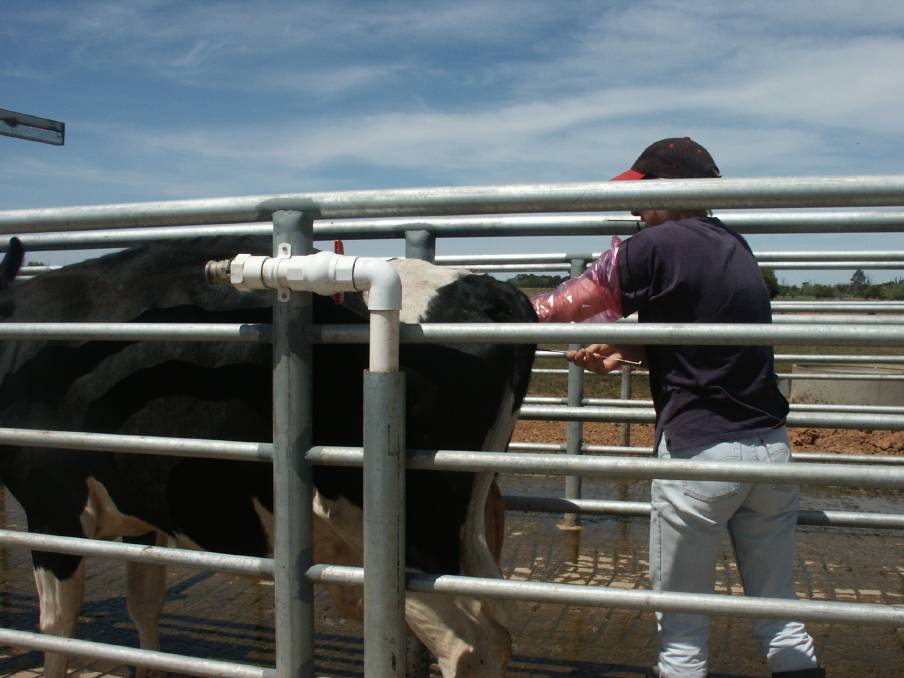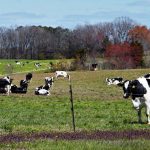
These people all have some level of vocational education that helps them perform their roles to a standard that makes dairy Australia’s fourth largest rural industry.
But despite this, the industry has consistently suffered job vacancies across all employment positions.
Last year, 47 per cent of dairy farms undertook recruitment activities, but 70pc of these farms experienced difficulty satisfying their employment needs, according to the 2020 National Dairy Farmer Survey.
The Australian Bureau of Agricultural and Resource Economics (ABARES) found that the main reason for this is that applicants do not meet the job requirements, either through lack of experience or specialised skills for the job.
Dairy farms seek employees with higher skill levels than some other agricultural industries, reflecting the complex capabilities required in dairy farming systems.
The skills shortage is having a real impact on our industry. One report found the direct cost of turnover on a dairy farm ranged from 50 to 150pc of an employee’s annual salary depending on the role. This translates to a conservative direct cost to industry of $60 to $200 million annually.
And last year’s National Dairy Farmer Survey found that 63pc of the dairy workforce was clocking up more than 40 hours per week just to cover the job vacancies and minimise recruitment costs.
This is a dire situation, but the dairy industry is taking positive and comprehensive steps to address the widespread skills shortage in the dairy industry.
In July last year, Australian Dairy Farmers (ADF) wrote to Home Affairs Minister Peter Dutton requesting that the federal government declare artificial insemination (AI) technicians as a critical skills shortage and to prioritise visa applications for these positions.
ADF also contributed to the federal government’s development of a National Agriculture Workforce Strategy, which aims to address the dairy industry’s workforce issues relating to recruitment, skills and training.
Similarly, the Pathway for People in Dairy program, launched in September, seeks to attract job seekers, accelerate induction and maintain a portable skills registry. Arising from this program, the Dairy Passport initiative, which is being delivered by Dairy Australia, enables job seekers to prepare for a career in dairy, and supports new entrants to develop essential skills required for on-farm roles.
The pathway helps new and seasoned dairy employers bring staff on board and support them over their first 90 days.
In September, Agriculture Minister David Littleproud announced that the National Cabinet approved the code to streamline cross-border farm worker access during COVID-19 interstate border closures.
And in October, Minister Littleproud announced an increase in financial support to job seekers who were prepared to temporarily relocate to take up at least six weeks of agricultural work.
ADF made a submission to the federal government proposing a series of amendments to the Dairy Industry Labour Agreement to ensure a non-discriminatory and consistent approach to qualifications and English language standards for foreign workers. Our recommendations are still being considered by the Department of Home Affairs.
The federal parliament in late March passed legislation aimed at addressing problems in the industrial relations system that provides for greater employment generation. ADF previously provided feedback on this legislation when it was the subject of a Senate inquiry.
This is quite a significant work program around ensuring dairy farms have access to skilled workers.
But despite this investment, we still have a critical skills shortage in the Australian dairy industry, which is causing a serious business constraint for many farms.
This is acknowledged by the federal government and why the government made the Dairy Industry Labour Agreement template available.
The government has also moved to incentivise employment with changes to the JobSeeker allowance once the $150 a fortnight COVID-19 supplement expires.
A permanent $50 a fortnight increase to the base rate has been announced, with job seekers expected to conduct 15 job searches a month, which will rise to 20 a month after July 1.
We are continuing to work with Dairy Australia and the federal government to ensure that you maintain access to a reliable, skilled workforce.
This is a critical issue and one that we will not drop.

























